Syria: No longer a proxy war?
The proxy war between Russia and the US is about to become a real world war, as the superpowers behind it have now come out, with advanced bombs and ammunition raining down on this resource-rich and strategically located Middle Eastern country.
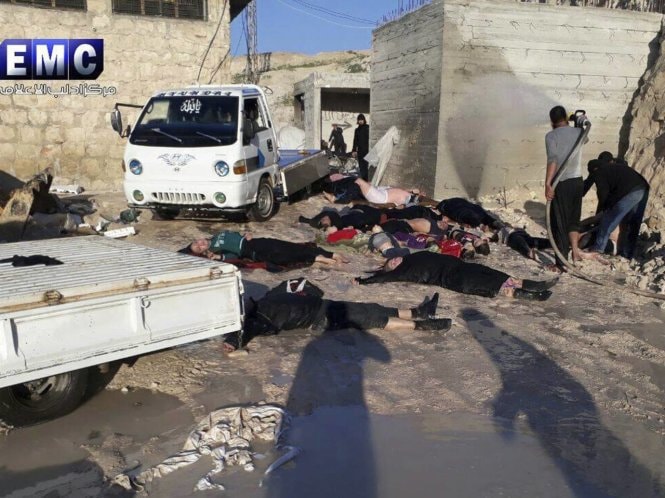 |
| Images of the alleged “chemical weapons attack” in Idlib quickly flooded the internet, but it is difficult to know exactly what happened on the ground-AP |
A small spark is threatening to turn into a wildfire in Syria. That spark is the April 4 “chemical weapons attack” in Khan Sheikhoun (south of Idlib province), which left “60-100 people dead and 200 affected” (the numbers cannot be verified by independent sources).
The scenario is familiar. Chemical weapons attack. President Bashar al-Assad accused of massacring civilians.
The United Nations (UN) and the Organization for the Prohibition of Chemical Weapons (OPCW) have just opened an investigation and have not yet concluded, but a draft resolution has been submitted by the US, France and UK to the Security Council, condemning the Assad regime.
There are still no results from the investigation. On April 6, US President Donald Trump declared that Mr. Assad had “crossed many lines,” while Secretary of State Rex Tillerson said that after the “chemical weapons attack,” “Mr. Assad’s role has ended.”
Three days later, US Ambassador to the UN Nikki Haley officially revealed her cards, confirming that Washington's new foreign policy towards Syria is a return to the old view: overthrowing the Assad regime.
Old script?
Many observers following the developments in Khan Sheikhoun on April 4 immediately associated it with the “Ghouta chemical attack” on August 21, 2013.
In that incident, the opposition-controlled Damascus suburb of Ghouta was attacked with rockets containing the nerve agent sarin.
The reported casualties ranged from 281 to nearly 1,800, depending on the source. The UN opened an investigation and experts at the scene confirmed that sarin was used, but did not say who used it.
The opposition claimed the Assad regime was responsible, while Damascus insisted it was the opposition. (Later, senior UN expert Carla De Ponte, after a site visit, admitted that there was evidence that the opposition used sarin gas, although she did not rule out the government army, but her assessment was never fully clarified.)
At that time, Mr. Trump’s predecessor, under Barack Obama, was preparing to intervene militarily when Russian President Vladimir Putin offered to act as a mediator to demand that the Syrian government hand over its entire chemical weapons stockpile in exchange for the United States considering demands for a change in the Assad regime. Direct US military intervention in Syria was temporarily suspended.
Now, it seems that the “Ghouta scenario” is playing out again. This time, the US is too impatient with the new administration, in the context of Mr. Trump’s domestic approval rating plummeting after only a short time in office, and Washington is not waiting for the results of an independent investigation.
The attack also recalled the 2003 Iraq war, when the CIA confirmed that Iraqi President Saddam Hussein possessed weapons of mass destruction, giving President George W. Bush the excuse to intervene militarily and overthrow Mr. Hussein.
Iraq has since become a purgatory, and the story of weapons of mass destruction has been proven a lie and has been forgotten.
In the Khan Sheikhoun incident, information from the Internet began. On April 4, video images appeared, allegedly taken in Idlib, recording the aftermath of a “chemical weapons attack.”
Civilians, many of them women and especially children, were foaming at the mouth and gasping for breath on the floor. The images were confirmed to be from Khan Sheikhoun, but the details remain very unclear to this day.
Almost all information and images come from just two sources: the Syrian Observatory for Human Rights, run by Syrian exiles in London, and the White Helmets (for more information on this organization, see TTCT No. 2-2017 dated January 8, 2017).
Accordingly, the chemical weapons attacks took place from 6:30 a.m. on April 4, with a total of 40 airstrikes. The video images are very dramatic, clear and extremely detailed, inevitably raising many questions, especially in the chaotic and dangerous circumstances of a "chemical weapons attack".
EADaily (Russia) news pointed out suspicious points: on Facebook, the first information about the attack was posted by the White Helmets at 7:14 p.m. on April 3, while the attack was reported to have broken out in the early morning of April 4!
EADaily also noted that it was impossible to verify this information because only the two organizations had access to Khan Sheikhoun, and neither official international aid organizations nor foreign press were present there.
Khan Sheikhoun is under the control of Al Qaeda's Trachir al Sham organization and Washington-backed moderate opposition groups Al Nousra.
Another article, by journalist and lecturer at the University of Western Sydney (Australia) Paul Antonopoulos in Information Clearing House (ICH), raises a number of other questions, both technical and strategic.
Firstly, online images show White Helmets members in direct contact with victims without gloves or protection, which is a taboo when dealing with victims of sarin poisoning.
Second, in a hospital with hundreds of sarin-poisoned patients, who has the time to make such sharp video and photographic recordings, and then post them online almost immediately, or even sooner?
Ultimately, the Assad regime and its allies now have the upper hand on the ground, having retaken Aleppo and pushed back the rebels, and the decision to launch a chemical attack against civilians would be suicidal for Damascus.
The chaotic news landscape is fertile ground for conspiracy theories and rumors. Even an independent investigation cannot confirm all suspicions, let alone the chaos and accusations that are currently occurring.
Meanwhile, the Syrian people are still suffering. Thanks to social media and the suspicious "credulity" of many major news agencies, images and information about the "chemical weapons attack" have spread extremely quickly, followed by statements from a series of Western countries, after the US are the UK, France, Turkey, Qatar... And the military does not lie, statements must be accompanied by actions.
From assumption to assertion
Western media, bound by professional principles, still include the words “seems” and “maybes” in their reports, but the fact that a series of major news agencies are pointing fingers at the Syrian government cannot help but raise suspicion.
Meanwhile, in the Russian media, suspicions that the self-proclaimed Islamic State (IS) was created by the US and then lost control, or that chemical attacks were directed by foreign countries, are being raised, and are not without basis.
On the ground, Russia, with its powerful leader Putin, has intervened with air strikes “at the invitation” of Mr. Assad.
And the US, a country that was founded in part on the principle of “benefit of the doubt” for even the smallest of actions, has rushed to punish the Assad regime – a dictatorship, even – with the terrible accusation of “chemical weapons attacks” against civilians when there are so many doubts. So while the show of force by the MiGs, Suspensions, and Tomahawks was impressive, the main disaster still fell on the heads of Syrian civilians.
But perhaps talking about moral principles is too much of a luxury now, when the war is escalating dangerously. The proxy war is in danger of becoming a real war between the superpowers.
The Cambridge Dictionary defines a proxy war as “a war between smaller groups or countries, each representing the interests of larger countries, and possibly receiving support from those larger countries.”
No one says it, but in reality, on Syrian soil, the war between the opposition and the Assad government is a contest between the United States, along with its allies Israel, Saudi Arabia, Qatar, Türkiye... on one side, and Russia, Iran, Hezbollah on the other side... The 59 Tomahawk missiles that the United States fired at Syria, with the excuse that Mr. Assad had "crossed the line", ironically, could be the act of "crossing the line" of a proxy war.
Neither side has said it, but since the civil war broke out six years ago, all sides have respected an unwritten rule on the battlefield: avoiding direct confrontation between Russia and the United States.
In January 2016, the OPCW confirmed that the agreement to destroy chemical weapons in Syria - as committed in 2013 - was completed. “Veolia, the US company contracted by the OPCW to destroy part of Syria’s chemical weapons stockpile, has completed the destruction of 75 cylinders of hydrogen fluoride (HF) at its facility in Texas,” the statement said. This completes the destruction of all chemical weapons as declared by the Syrian Arab Republic... Commenting on the development, OPCW Director General Ahmet Üzümcü said: “The work carried out is an important chapter in the elimination of Syria’s chemical weapons programme as part of our efforts to clarify the Syrian regime’s claims and address the use of toxic chemicals as weapons in the country.” But as OPCW inspections of rebel-held areas (including Idlib province) continued, new reports of the attack emerged. |
This unwritten rule was reaffirmed in 2013, by President Obama’s decision not to deploy ground troops; by the broken peace talks; and by the now-broken agreement to notify each other of Russian and American military activities on the ground.
The problem is that under Obama, the policy of minimization and non-intervention abroad was quite consistent from beginning to end, but under Trump, no one knows how Washington will act. After being elected, he appeared moderate towards Russia, even being seen as having beneficial relations with the Kremlin.
Mr. Trump, with his clear populist views, also said that he would reduce America's international involvement and focus resources on Americans at home. But now everything has changed 180 degrees.
Not coincidentally, just a week before ordering the missile strikes on Syria, he met with the leaders of Saudi Arabia, Egypt, Jordan and Israel, who proposed forming a military alliance against Iran, a major backer of the Assad regime.
According to Tuoitre.vn
| RELATED NEWS |
|---|

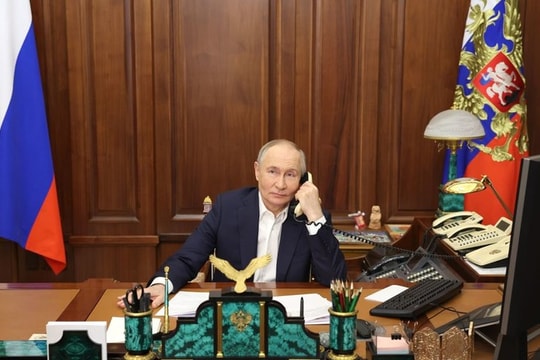
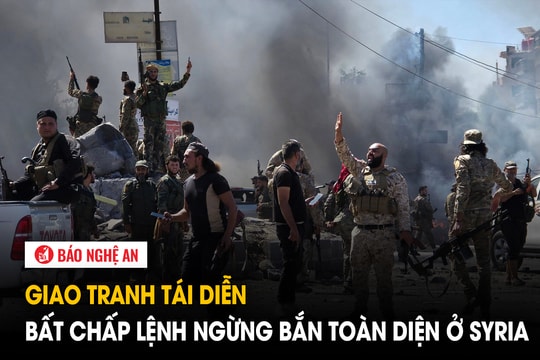
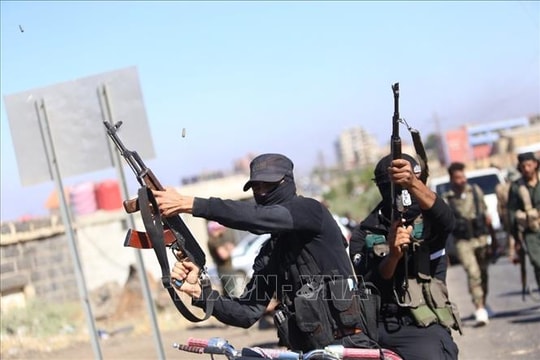
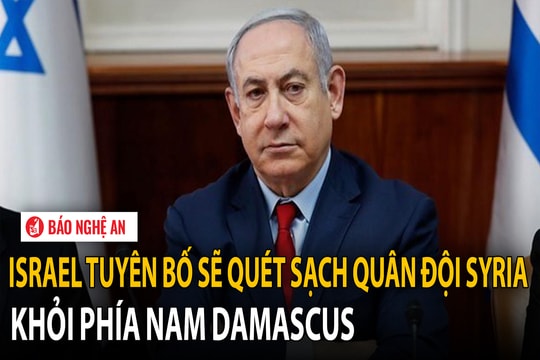
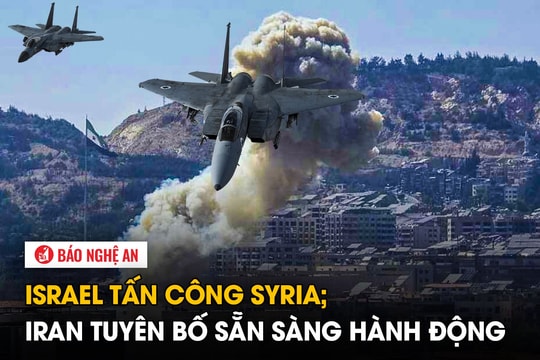
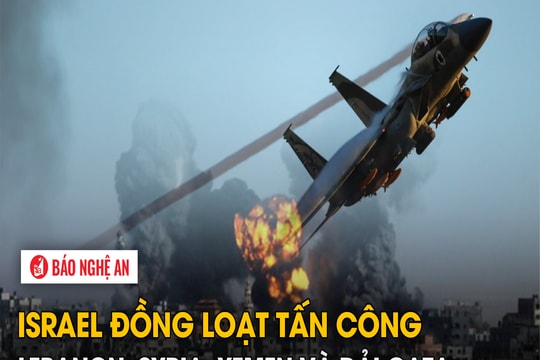
.jpg)
